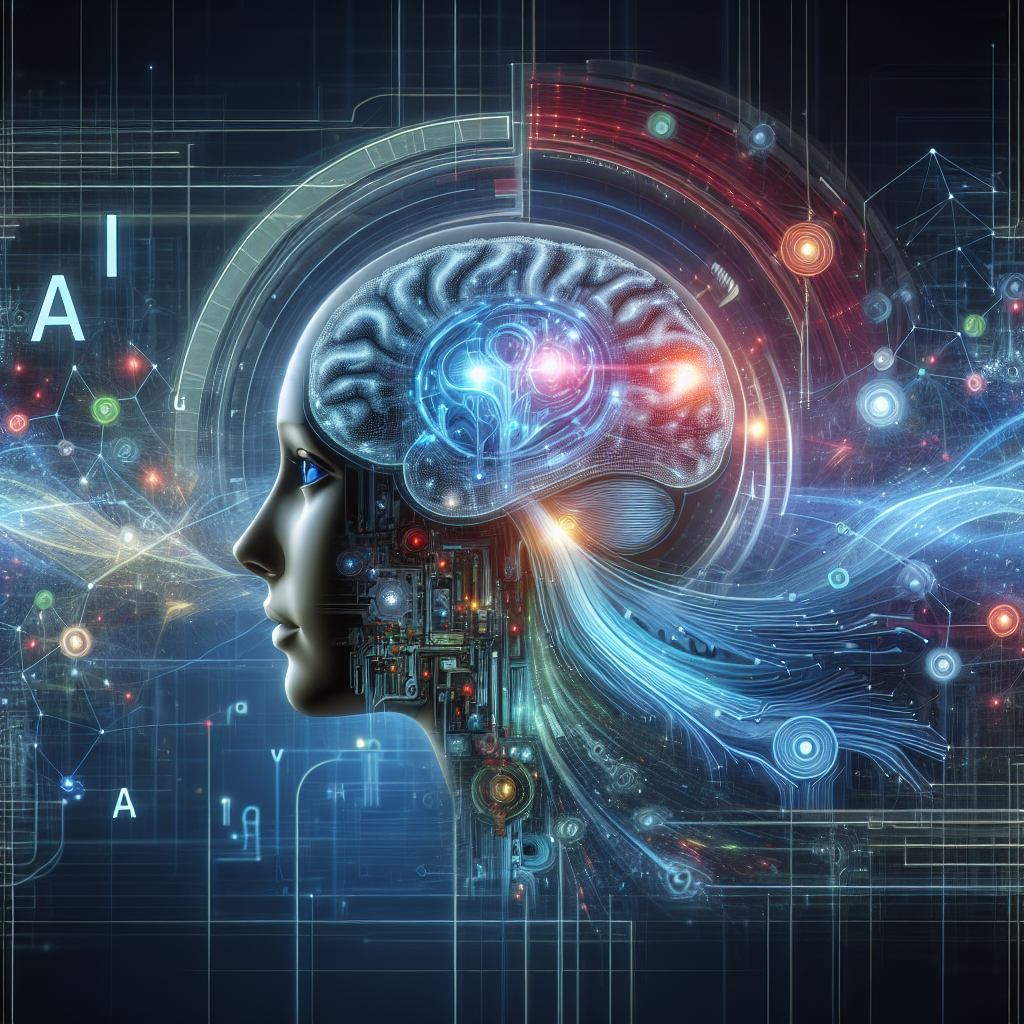Exploring the Potential of AGI: A Game-Changer in AI Development
Artificial General Intelligence (AGI) is a term that refers to the development of machines that possess human-like intelligence and capabilities. Unlike narrow AI, which is designed to perform specific tasks, AGI aims to create machines that can think, learn, and adapt in ways that mimic human intelligence. This concept has long been a goal of AI researchers, as it has the potential to revolutionize numerous industries and change the way we interact with technology.
In recent years, there has been a growing interest in AGI as advancements in machine learning, neural networks, and deep learning have brought us closer to achieving this goal. Companies such as OpenAI and DeepMind are at the forefront of AGI research, pushing the boundaries of what is possible in the field of artificial intelligence. The potential of AGI is vast, with implications for everything from healthcare to transportation to entertainment.
One of the key advantages of AGI is its ability to learn and adapt to new information in real-time. This means that machines with AGI can continuously improve their performance and make decisions based on the most up-to-date data available. This has the potential to revolutionize industries such as healthcare, where AGI could be used to analyze medical data, diagnose diseases, and develop personalized treatment plans for patients.
In addition to its applications in healthcare, AGI has the potential to revolutionize the way we interact with technology in our daily lives. Imagine a world where your smart home system can anticipate your needs and preferences, adjusting the temperature, lighting, and music to create the perfect ambiance for any occasion. Or a virtual assistant that can carry on a conversation with you, learn your habits and preferences, and help you manage your schedule and tasks more efficiently.
AGI also has the potential to revolutionize the way we work, allowing us to automate repetitive tasks and focus on more creative and strategic activities. For example, in the field of finance, AGI could be used to analyze market trends, make investment decisions, and optimize portfolio performance. In the field of manufacturing, AGI could be used to optimize production processes, minimize waste, and increase efficiency.
Despite its potential benefits, AGI also raises concerns about its impact on society. One of the main concerns is the potential for job displacement, as machines with AGI capabilities could potentially replace human workers in a wide range of industries. This could lead to widespread unemployment and economic upheaval, as workers are forced to adapt to a rapidly changing job market.
Another concern is the potential for AGI to surpass human intelligence and develop its own goals and motivations. This raises questions about the ethical implications of creating machines that are capable of making decisions that could impact the well-being of society as a whole. Ensuring that machines with AGI capabilities are designed with ethical considerations in mind will be crucial to preventing unintended consequences.
Despite these concerns, the potential of AGI to revolutionize numerous industries and improve our quality of life is undeniable. As researchers continue to push the boundaries of what is possible in artificial intelligence, the development of AGI has the potential to be a game-changer in the field of AI development.
FAQs:
Q: What is the difference between AGI and narrow AI?
A: AGI refers to machines that possess human-like intelligence and capabilities, while narrow AI is designed to perform specific tasks. AGI has the ability to learn, adapt, and make decisions in ways that mimic human intelligence, while narrow AI is limited to the tasks for which it is programmed.
Q: How close are we to achieving AGI?
A: While significant advancements have been made in AI research in recent years, achieving AGI is still a long-term goal. Researchers are working to overcome challenges such as understanding human cognition, developing more advanced neural networks, and creating machines that can learn and adapt in real-time.
Q: What are the potential applications of AGI?
A: AGI has the potential to revolutionize numerous industries, including healthcare, transportation, finance, and entertainment. Machines with AGI capabilities could be used to analyze medical data, make investment decisions, optimize production processes, and personalize entertainment experiences.
Q: What are the ethical concerns surrounding AGI?
A: One of the main ethical concerns surrounding AGI is the potential for job displacement, as machines with AGI capabilities could potentially replace human workers in a wide range of industries. There are also concerns about the potential for AGI to develop its own goals and motivations, raising questions about the ethical implications of creating machines that could impact society as a whole.

